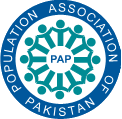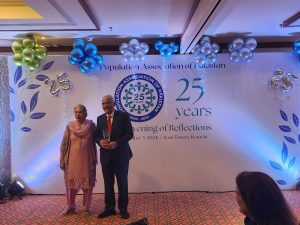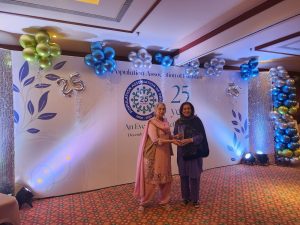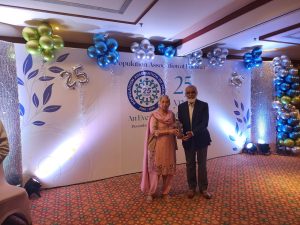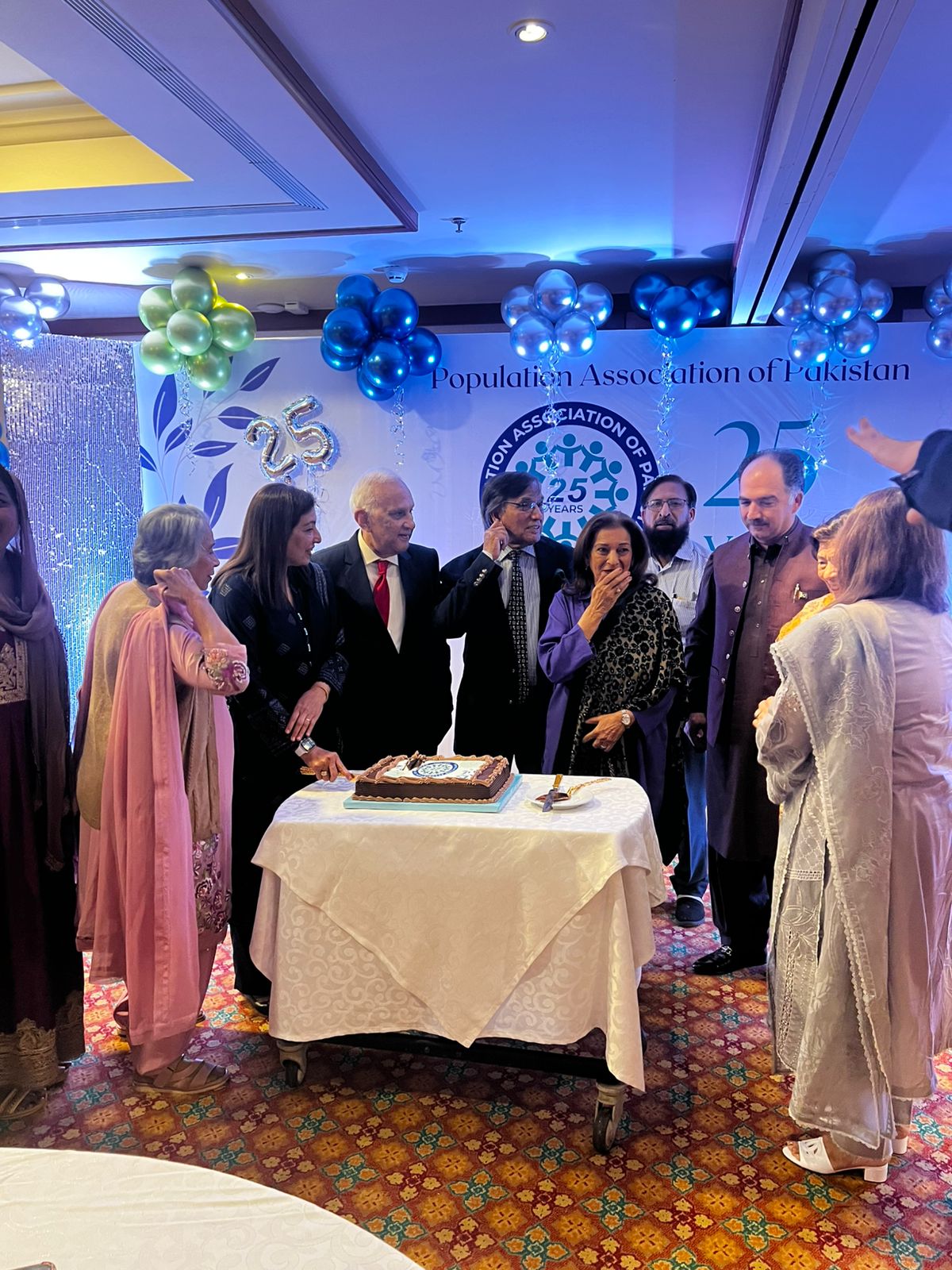
An Evening of Reflections by the 12th Executive Council
Under the leadership of Dr. Nasra Shah, the 12th President, and Dr. Xaher Gul, Secretary General, the 12th Executive Council of the Population Association of Pakistan (PAP) hosted a memorable evening of reflections.
The gathering brought together current and former members to celebrate the Council’s achievements and recognize the collective efforts that have shaped the Association’s journey. The event served as a platform to honor past successes, revisit milestones, and appreciate the enduring commitment of its members.

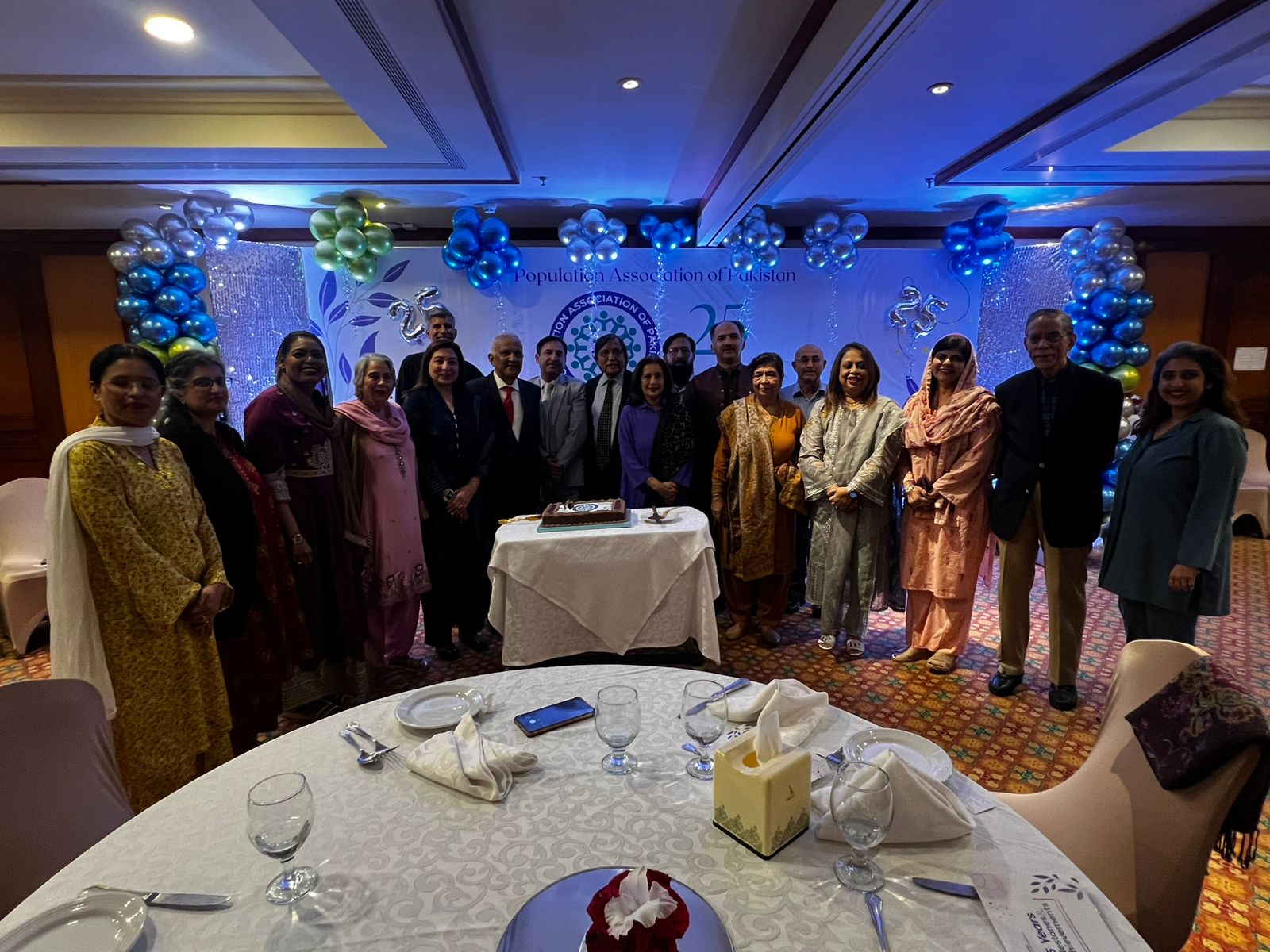
Key areas highlighted during the event included the Association’s accomplishments, member contributions, the importance of membership fees, and strategies for sustainable resource generation. Former presidents and founding members played an integral role in chairing the discussions, sharing insights from PAP’s early days to its present-day impact. The evening concluded with a cake-cutting ceremony and dinner, celebrating the shared vision and dedication of all who have contributed to PAP’s legacy.
